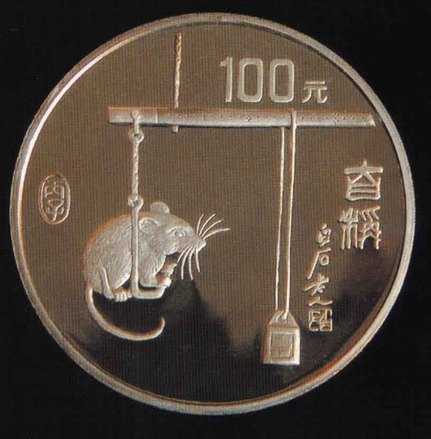

Using legal aggression with patents -- lots of patents which SIPO is granting sparingly these days -- companies become ever more aggressive. China is becoming business-hostile (as we predicted) in some sense and IAM said earlier today that "Beijing IP Court slaps Sony Mobile with injunction based on SEP infringement" and "[a]ccording to Xinhua, the case was filed back in 2015, but negotiations between Sony and Iwncomm over the patent stretch back to at least 2009. The injunction is set to affect 35 Sony models, including the Xperia Z1 and Xperia Z2 in the country. China’s Lexfield Law Offices has helpfully translated the court’s reasoning for granting the injunction..."
[PDF], Iwncomm was a delegate in its conference. Other new posts about it say that it's about a "standard (required in China) known as WAPI." (WLAN Authentication and Privacy Infrastructure)
"Whatever the motivation may be, it will probably harm China's ability to compete in the international scene."Now that SIPO is allowing software patents, which are about to become even more permissible on April 1st, the above is made possible. WAPI is said to be "designed to limit trade into China," based on Wikipedia, which adds that it's "requiring foreign companies to provide confidential trade secrets to Chinese corporations."
Maybe that's the thinking behind patent maximalism in China? Similarly to the country's censorship policy, which is often criticised as means of embargoing foreign companies and thus propping up local (domestic) companies?
Whatever the motivation may be, it will probably harm China's ability to compete in the international scene.
Over in the US, Trading Technologies with its notorious patent lawsuits is mentioned by a blog of a pro-software patents firm which is closely involved. It's about patents on interfaces (in relation to user interfaces) and the firm explains that "the Federal Circuit issued an opinion in Trading Technologies Int’l., Inc. v. CQG, Inc., its first decision finding a user interface to be patent eligible subject matter. The court designated the opinion as non-precedential. On Monday SHzoom LLC filed a motion under Federal Circuit Rule 32.1(e), which allows any person to request that the court reissue a decision as precedential. The text of the motion is set forth below."
"But not all is positive as TC Heartland is looming and for the time being the US trumps China when it comes to patent trolling."Being non-precedential means, much to the regret of patent law firms, that CAFC remains a colossal barrier to software patents. Most of its decisions are against software patents and these decisions are precedential too, just like Alice.
But not all is positive as TC Heartland is looming and for the time being the US trumps China when it comes to patent trolling. Moreover, as EFF lawyers have just put it, the US Supreme Court won't stand in the way of trolls, as we noted briefly last night in relation to SCA Hygiene v First Quality ruling. Here is an explanation:
In a ruling this week that will cheer up patent trolls, the Supreme Court said patent owners can lie in wait for years before suing. This will allow trolls to sit around while others independently develop and build technology. The troll can then jump out from under the bridge and demand payment for work it had nothing to do with.
The 7-1 decision arrives in a case called SCA Hygiene v. First Quality Baby Products. This case involves a patent on adult diapers but has a much broader reach. The court considered whether the legal doctrine of "laches" applies in patent cases. Laches is a principle that penalizes a rightsholder who "sleeps on their rights" by waiting a long time to file a lawsuit after learning of a possible infringement. It protects those that would be harmed by the assertion of rights after a lengthy delay. For example, laches would work against a patent owner that saw an infringing product emerge yet waited a decade to sue, after significant investment of time and resources had been put into the product.
The ruling in SCA follows a similar decision in Petrella v. MGM holding that laches is not available as a defense in copyright cases. The Supreme Court has generally rejected "patent exceptionalism" and has often reversed the Federal Circuit for creating special rules for patent law. So this week's decision was not especially surprising. In our view, however, there were compelling historical and policy arguments for retaining a laches defense in patent law.